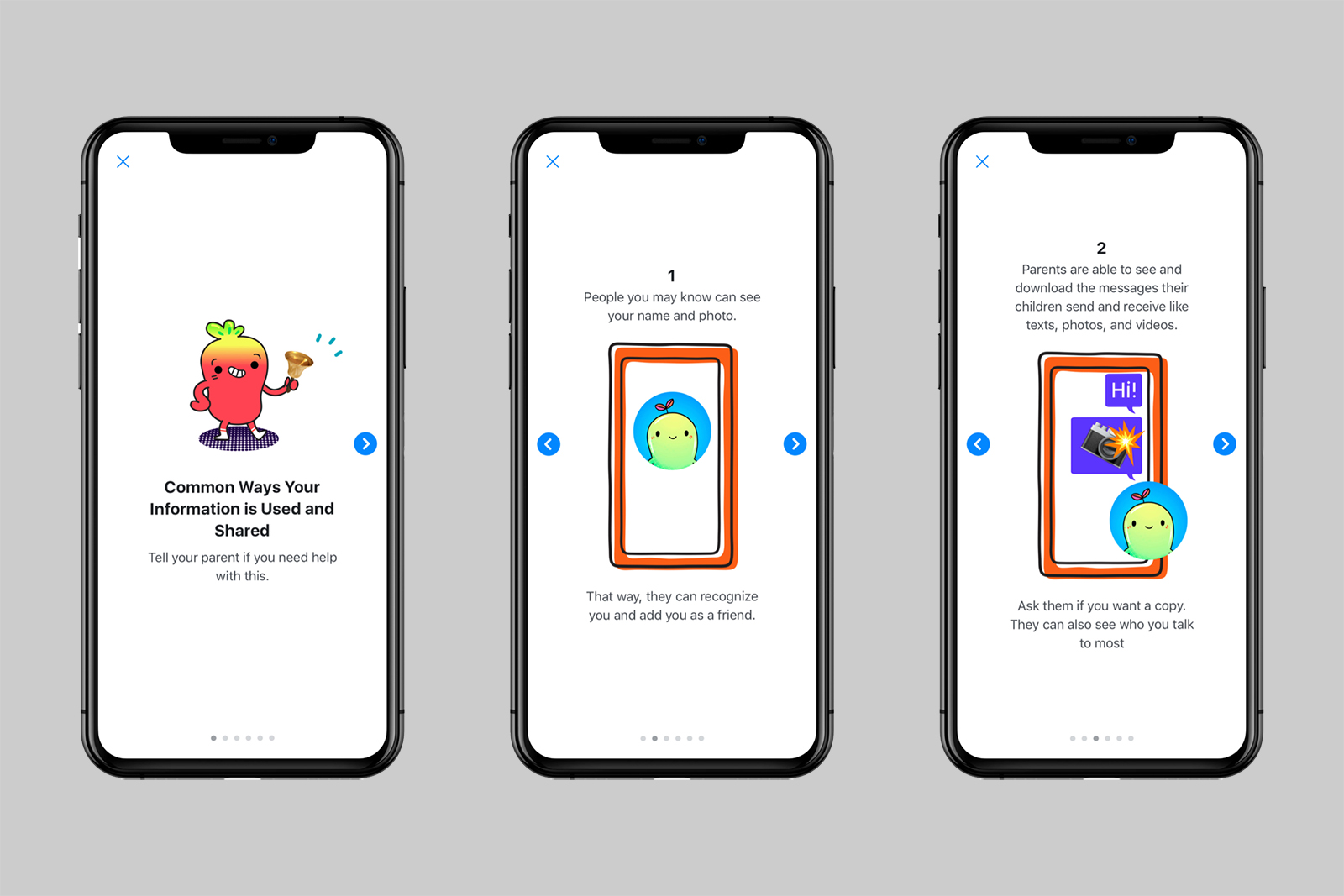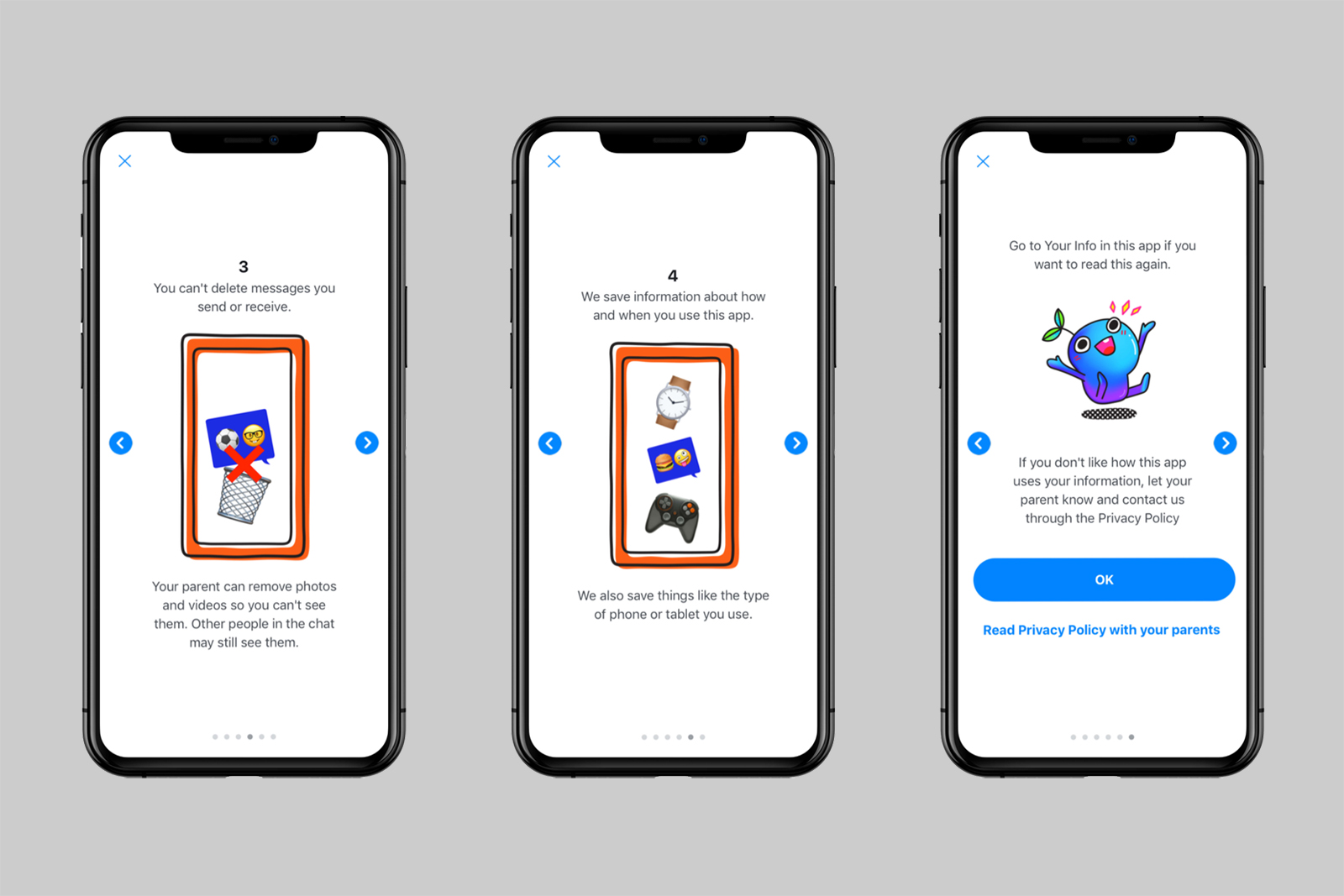Facebook — the network that paid a $5 billion fine over privacy violations last summer — wants to help teach kids about the lack of privacy on the internet. In a slew of new features to Messenger Kids, Facebook is launching a tool that uses simple, kid-friendly language to detail how user information is used. While Facebook is hardly a role model on user data, the rundown on data use is, frankly, something some adults could use, too.
Facebook says the in-app tool aims to inform kids on what types of information others can see about them — which is more restricted in Messenger Kids than any other Facebook-owned app. The in-app tool reminds kids that names and photos are visible to other people, parents can see messages, messages can’t be deleted, and Facebook saves user information.
The update is little more than a reminder, but is, at least, a step in the right direction. The on-screen pop-ups don’t spell out every detail like the privacy policy, which has also been updated to cover the latest features and offer more transparency on who Facebook shares information with — which, according to that policy, is only third-party providers that help operate the messaging app itself.
While the pop-ups may be easy to scroll past, updates to the parental controls give parents a few more options to monitor kids’ activity. Messenger Kids’ parent dashboard will now display recent contacts and chat history that also shows how often the child is chatting with that person and whether that is through text or video calls. An image log will also make monitoring photos and videos, both sent and received, accessible in one place instead of digging through individual chats.
Parents can also now see who the child has blocked — and, since the update gives kids the ability to unblock a contact — who the child has unblocked. A new remote device logout allows parents to log out of devices signed into their child’s account.
Finally, the same tool that allows users to download their Facebook and Instagram data is migrating to Messenger Kids, allowing parents to download all of their child’s information. The tool, accessible from Facebook, downloads all the contacts, messages, images, and videos, both sent and received. Facebook sends the child a notification when a parent has requested the download.





